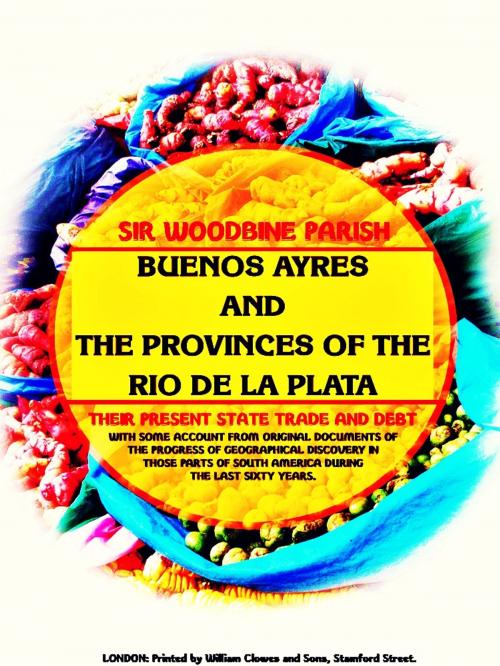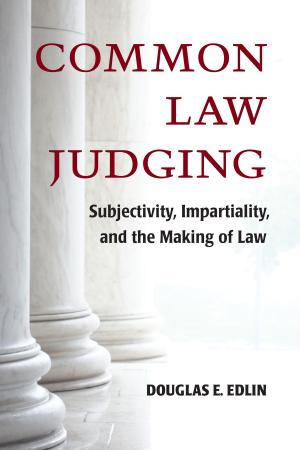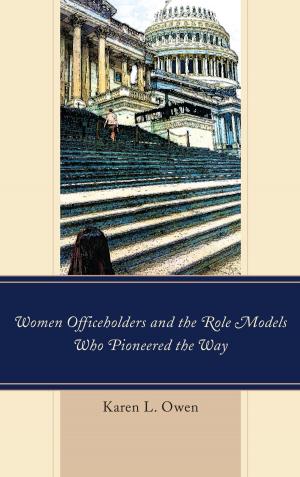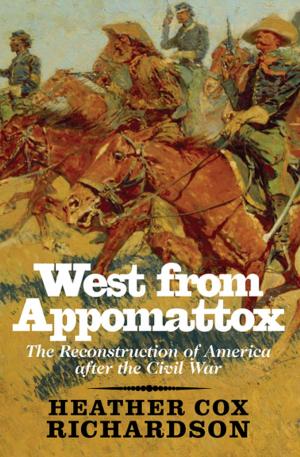Buenos Ayres and the Provinces of the Rio de La Plata
Their Present State, Trade and Debt
Nonfiction, History, Americas, South America, Social & Cultural Studies, Political Science, Politics, Economic Conditions, Government| Author: | Woodbine Parish | ISBN: | 1230000276761 |
| Publisher: | William Clowes and Sons | Publication: | October 27, 2014 |
| Imprint: | Language: | English |
| Author: | Woodbine Parish |
| ISBN: | 1230000276761 |
| Publisher: | William Clowes and Sons |
| Publication: | October 27, 2014 |
| Imprint: | |
| Language: | English |
Example in this ebook
The greater part of the materials for this volume were collected during a long official residence in the country to which they relate: containing, as I believe they do, some information which may be interesting, if not useful, I feel that I ought not to withhold them from the public, in whose service they were obtained.
The chapters which give an account of the settlements made by the old Spaniards on the coast of Patagonia, and of the explorations of the Pampas south of Buenos Ayres, both by them and their successors in the present century, will be found to throw some new light on the progress of geographical discovery in that part of the world. Our occupation of the Falkland Islands, in the first instance, and the work shortly afterwards published by Falkner in this country, pointing out the defenceless state of Patagonia, joined to the enterprising character of the British voyages of discovery about the same period, appears to have stimulated the Spaniards, in alarm lest we should forestall them, to examine their coasts, to explore their rivers, and to found settlements, of which every record was concealed from public view, lest the world at large should become better acquainted with possessions, all knowledge of which it was their particular care and policy to endeavour to keep to themselves.
Thus, though Spain, at an enormous cost, acquired some better information relative to countries over which she claimed a nominal sovereignty, the results were not suffered to transpire, but remained locked up in the secret archives of the viceroys and of the council of the Indies; where probably they would have been hidden to this day had not the South Americans assumed the management of their own affairs.
In the confusion which followed the deposition of the Spanish authorities, the public archives appear to have been ransacked with little ceremony, and many documents of great interest were lost, or fell into the hands of individuals who, like collectors of rarities in other parts of the world, showed anything but a disposition to share them with the public at large. I will not say that this was always the case, but the feeling prevailed to a sufficient extent to enhance materially the value of those which were either offered for sale or obtainable by other means.
Some few individuals were actuated by a different spirit, amongst whom I ought especially to name Dr. Segurola, the fellow-labourer with Dean Funes in his historical essay upon the provinces of La Plata, whose valuable collection of MSS. (from which that work was principally compiled) was always accessible to his friends, and to whom I have to acknowledge my own obligations for leave to take copies of many an interesting paper. Others, also, whom I do not name, will I trust not the less accept my thanks for the facilities they afforded me for obtaining such information as I required. The government, I must say, was always liberal, in giving me access to the old archives, and in permitting me to transcribe documents which I could not have obtained from other quarters.
With these facilities, and by purchase, I found myself, by the time I quitted South America, in possession of a considerable collection of MS. maps and of unedited papers respecting countries of which the greater part of the world is, I believe, in almost absolute ignorance.
Amongst the most interesting perhaps of these I may mention—
The original Diaries of Don Juan de la Piedra, sent out from Spain, in 1778, to explore the coasts of Patagonia.
A series of papers drawn up by his successors the Viedmas, the founders of the settlements at San Julian and on the Rio Negro.
The original Journal of Don Basilio Villariño, who, in 1782, explored the great river Negro, from its mouth in lat. 41° to the foot of the Andes, within three days' journey of Valdivia, on the shores of the Pacific.
To be continue in this ebook...............................................................................................................
Example in this ebook
The greater part of the materials for this volume were collected during a long official residence in the country to which they relate: containing, as I believe they do, some information which may be interesting, if not useful, I feel that I ought not to withhold them from the public, in whose service they were obtained.
The chapters which give an account of the settlements made by the old Spaniards on the coast of Patagonia, and of the explorations of the Pampas south of Buenos Ayres, both by them and their successors in the present century, will be found to throw some new light on the progress of geographical discovery in that part of the world. Our occupation of the Falkland Islands, in the first instance, and the work shortly afterwards published by Falkner in this country, pointing out the defenceless state of Patagonia, joined to the enterprising character of the British voyages of discovery about the same period, appears to have stimulated the Spaniards, in alarm lest we should forestall them, to examine their coasts, to explore their rivers, and to found settlements, of which every record was concealed from public view, lest the world at large should become better acquainted with possessions, all knowledge of which it was their particular care and policy to endeavour to keep to themselves.
Thus, though Spain, at an enormous cost, acquired some better information relative to countries over which she claimed a nominal sovereignty, the results were not suffered to transpire, but remained locked up in the secret archives of the viceroys and of the council of the Indies; where probably they would have been hidden to this day had not the South Americans assumed the management of their own affairs.
In the confusion which followed the deposition of the Spanish authorities, the public archives appear to have been ransacked with little ceremony, and many documents of great interest were lost, or fell into the hands of individuals who, like collectors of rarities in other parts of the world, showed anything but a disposition to share them with the public at large. I will not say that this was always the case, but the feeling prevailed to a sufficient extent to enhance materially the value of those which were either offered for sale or obtainable by other means.
Some few individuals were actuated by a different spirit, amongst whom I ought especially to name Dr. Segurola, the fellow-labourer with Dean Funes in his historical essay upon the provinces of La Plata, whose valuable collection of MSS. (from which that work was principally compiled) was always accessible to his friends, and to whom I have to acknowledge my own obligations for leave to take copies of many an interesting paper. Others, also, whom I do not name, will I trust not the less accept my thanks for the facilities they afforded me for obtaining such information as I required. The government, I must say, was always liberal, in giving me access to the old archives, and in permitting me to transcribe documents which I could not have obtained from other quarters.
With these facilities, and by purchase, I found myself, by the time I quitted South America, in possession of a considerable collection of MS. maps and of unedited papers respecting countries of which the greater part of the world is, I believe, in almost absolute ignorance.
Amongst the most interesting perhaps of these I may mention—
The original Diaries of Don Juan de la Piedra, sent out from Spain, in 1778, to explore the coasts of Patagonia.
A series of papers drawn up by his successors the Viedmas, the founders of the settlements at San Julian and on the Rio Negro.
The original Journal of Don Basilio Villariño, who, in 1782, explored the great river Negro, from its mouth in lat. 41° to the foot of the Andes, within three days' journey of Valdivia, on the shores of the Pacific.
To be continue in this ebook...............................................................................................................















